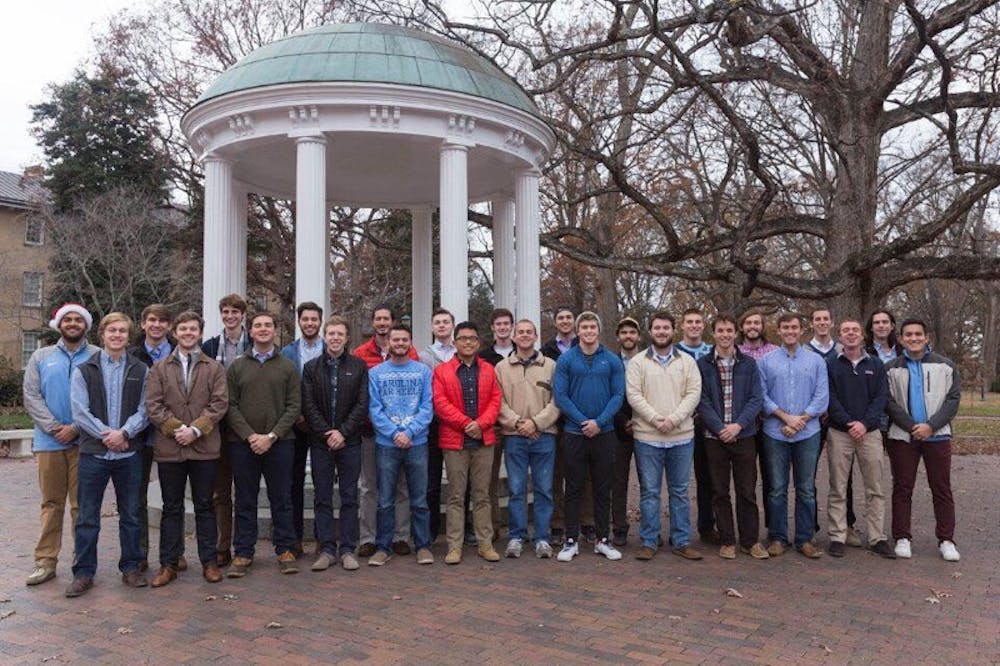What began as a slight curiosity in 2015 by then-sophomore Harrison Toohey would later become the foundation for a new Greek chapter at UNC.
Toohey's conversations with the fraternity members at his summer job, Pine Cove Christian Camp, materialized into a new chapter of Beta Upsilon Chi, abbreviated as BYX, focused on providing members an alternative fraternity experience.
Beta Upsilon Chi will hold a seat on the UNC Interfraternity Council as a provisional member in spring of 2018 and is primed to become an associate member as soon as next fall.
The University's IFC has an open expansion policy, allowing any fraternities recognized by the North American Interfraternity Council to become members. IFC President Matt Mengert said that each time the group expands, a larger pool of potential fraternity members are drawn to the group.
“One of the things we saw from their expansion is some of the people that might not otherwise have been in a fraternity or Greek community were given an opportunity to join an organization that may have different opportunities in terms of starting at a newer position,” Mengert said. “You get to be one of the first alumni, the guiding people in the fraternity, some of the founders of that chapter.”
The UNC chapter of BYX currently has around 60 members. Many students joined for the notable differences in BYX from other fraternities, like their alcohol-free events and parties.
“Part of what BYX wants to do is provide an alternative fraternity,” BYX President Cameron Church said. “We wanted to bring something to the IFC that was a little different and that was going to expand the IFC community as a whole.”
Johnny Rubin, BYX's current treasurer and incoming president, said he feels their chapter attracts a specific type of person. He hopes their unique policies will bring a new perspective to fraternity culture on campus.
"Our chapter and our brothers are really looking to be invested in each other and really looking to be invested in the Greek system and be gentlemen and people that are active, engaged and leaders in the UNC and Carolina community,” Rubin said.



